Balinese food is somewhat different to Indonesian food in that it often includes pork items (lawar, babi guling etc.) and tends to more pedas (spicy) and less manis (sweet) than Javanese cuisine, which has a wider range of sauces.
However, authentic Balinese food is rarely enjoyed by the tourists as it’s seldom served in hotels and restaurants. The staple daily food is rice, accompanied by vegetables and a small amount of fish or other meat. Of course, condiments are always used.
The food most tourists see as Indonesian food comes from Java. Here are some popular dishes from Indonesia, that you might get served in Bali.
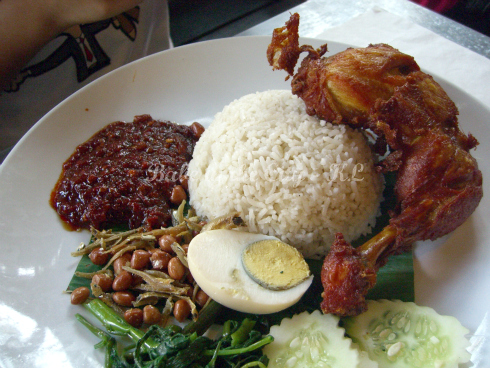
•Ayam goreng – fried chicken, often served with rice and lalapan.
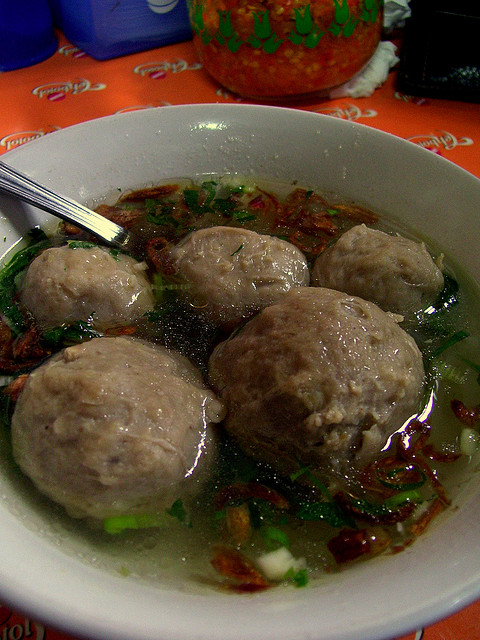
•Bakso – spicy meatball soup. This dish is influenced by the Chinese meatballs.
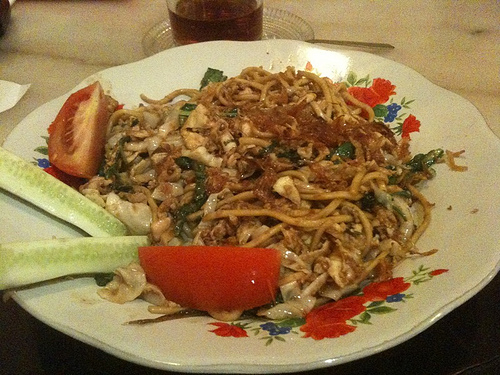
•Bakmi goreng – fried noodle, meat and vegetables.
•Botok daging sapi – spicy minced beef, tofu, tempeh and coconut milk.
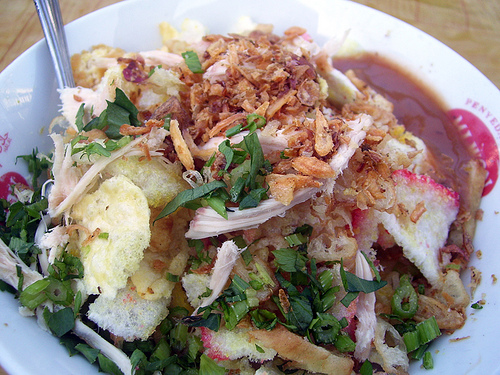
•Bubur ayam – chicken porridge. Served at the pasar pagi (morning markets).
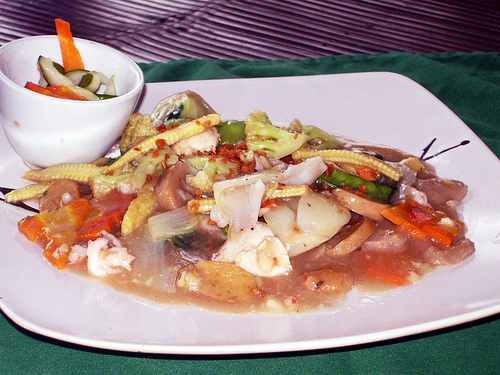
•Cap cay – mixed fried vegetables (originally a Chinese dish, similar to the Cantonese style).
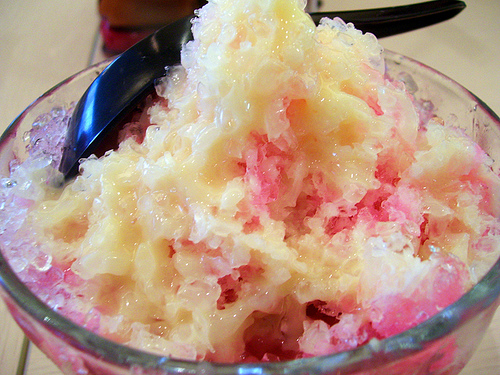
•Es campur – fruits, gelatin, chocolate sauce, milk with shaved ice.
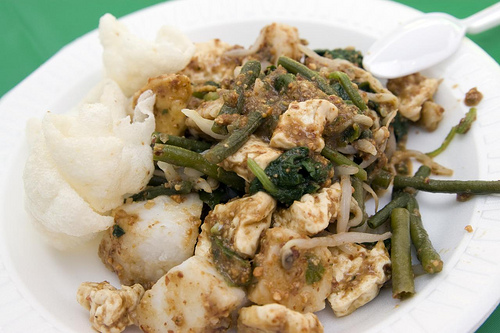
•Gado gado – steamed cabbage, bean sprouts, potato and other vegetables served with peanut sauce.
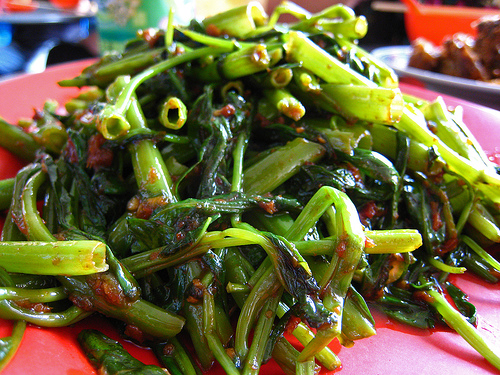
•Kangkung – water spinach (a popular, stringy vegetable).
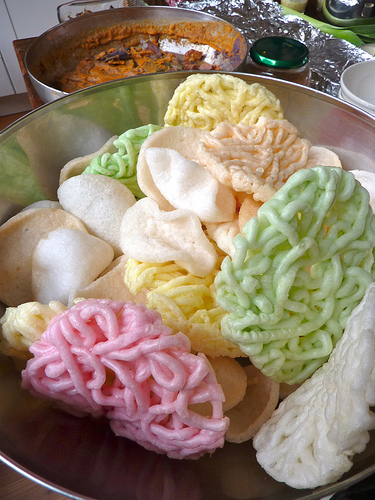
•Krupuk – prawn crackers in a range of sizes, served with nasi campur.
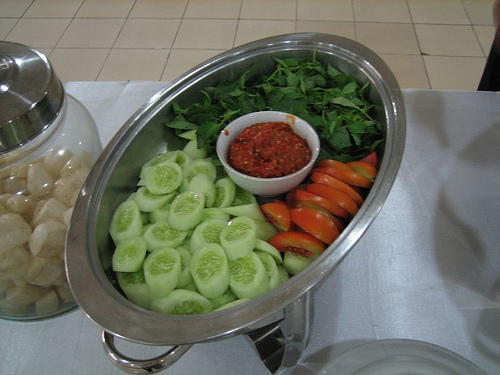
•Lalapan – raw vegetables (green beans, cabbages, cucumbers, mint leaves) served with sambal. Accompanies ayam bakar and ikan bakar (grilled chicken and fish).
•Lontong – Steamed rice compressed into a roll, inside a banana leaf. Often served with sate ayam at street-side sate vendors.
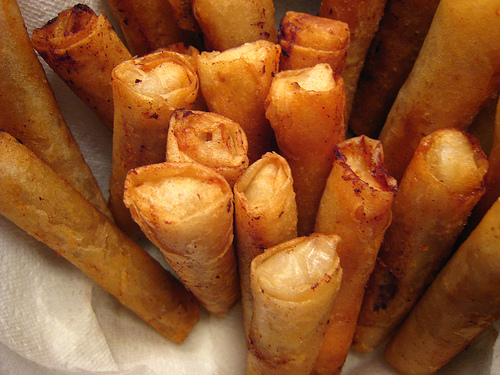
•Lumpia – spring rolls containing diced carrot, bean sprouts and other items. Semarang Java is famous for lumpia.
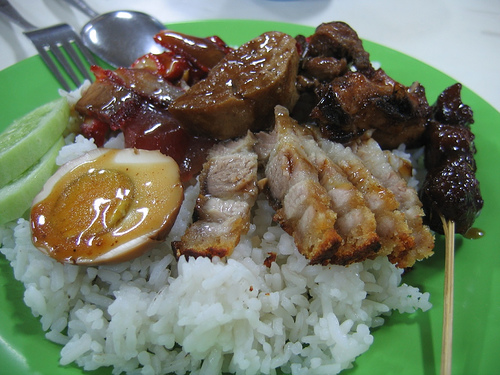
•Nasi campur – the national dish. Means ‘mixed rice’ and is a portion of steamed rice with an assortment of meats, vegetables, tofu, tempeh and hot sambal.
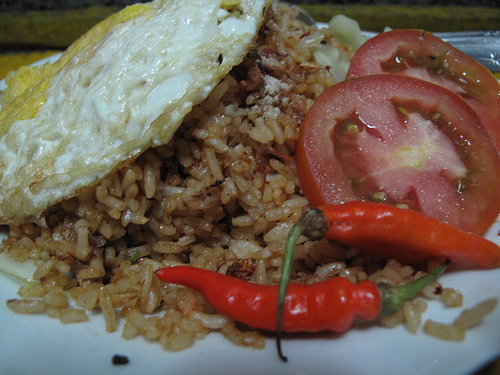
•Nasi goreng – fried rice. The most common Indonesian food item served in tourist warungs and restaurants. Often served with a fried egg on top.
•Nasu putih – white rice. Other options include nasi kuning (yellow rice) and nasi merah (red rice).
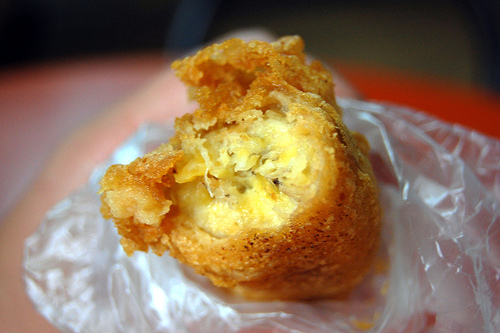
•Pisang goreng – fried banana. Popular at local markets where you can get 4 small fried bananas for 1,000rp.
•Rijstaffel – rice table. The Dutch colonial version of how to serve Indonesian food. Many dishes with meats, fish and vegetables.
•Rujak – Indonesian fruit salad made from unripe papaya, apple and other fruits. Served with chili, salt and caramel.
•Rujak petis – fruit and vegetable salad with spicy peanut and shrimp sauce.
•Tahu goreng telur – an omelette with tofu.
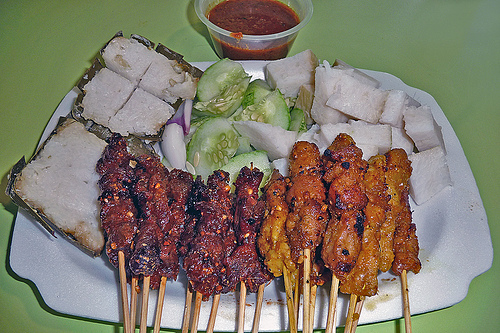
•Sate – sometimes called ‘satay’. Small strips of meat cooked over charcoal. Javanese sate vendors sell sate ayam (chicken sate with peanut sauce) and sate kambing (goat sate). Balinese sate vendors often sell sate babi (pork sate with a deliciously tangy, spicy sauce), especially outside ceremonies. Generally a Balinese sate vendor will sell you 10 pieces for 5,000rp.
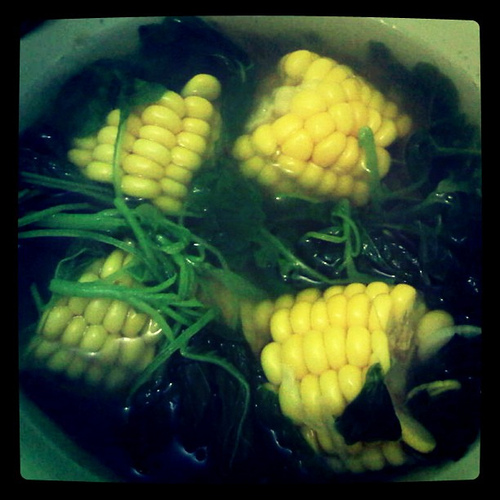
•Sayur bening – spinach and corn soup.
•Urap-urap / urap timum – vegetables in shaved coconut and chili. A Balinese dish which is a pleasant surprise when found in a warung.
The best ways to explore Indonesian food are to:
1) Visit a night market and try some things.
2) Have lunch at a warung popular with locals, pointing out items you’d like to try.
3) Stop at the road side for some sate or other local snack.
Photo credits: Ayam goreng , Bakso , Bakmi goreng , Bubur ayam , Cap cay , Es campur , Gado gado , Kangkung , Krupuk , Lalapan , Lumpia , Nasi campur , Nasi goreng , Pisang goreng , Satay , Sayur bening